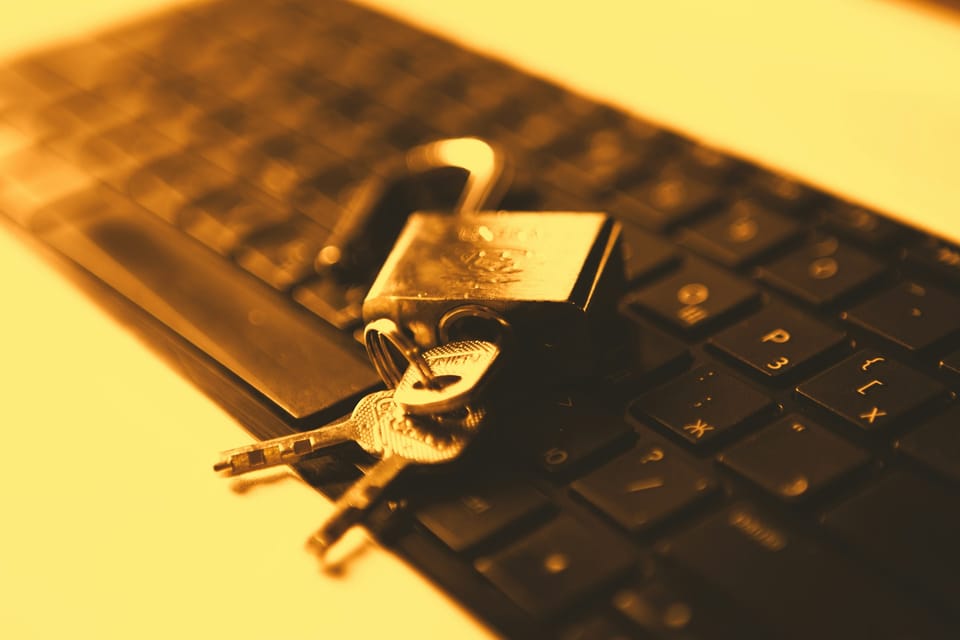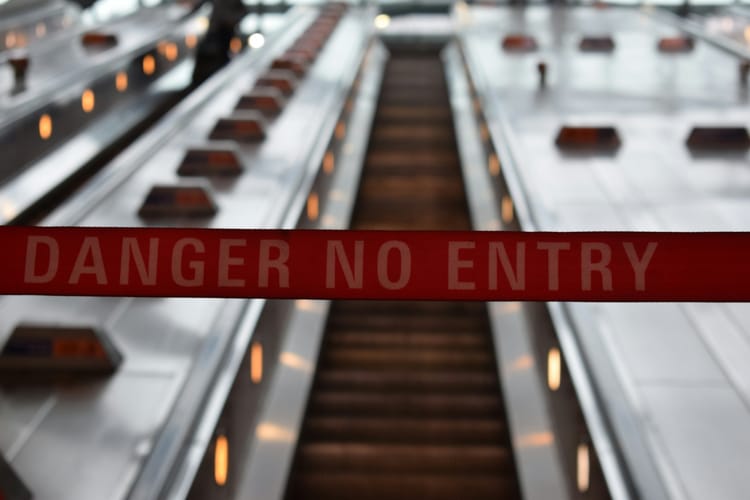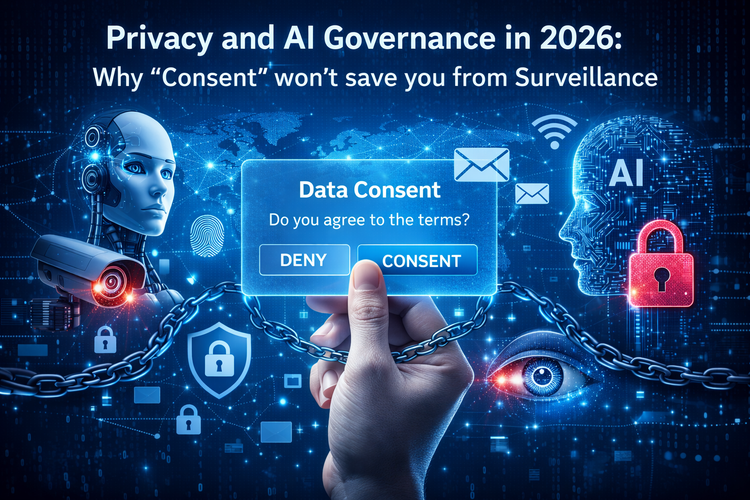What Is End-to-End Encryption? The minimum for Online Privacy

In an age where data breaches, surveillance, and corporate data collection have become everyday news, many people are asking: what is end-to-end encryption and why does it matter?
Whether you're just browsing the internet, chatting with friends, or managing your own website, end-to-end encryption (E2EE) is one of the most important tools to protect your privacy. In this guide, we’ll explore what does end to end encryption mean, how it works, why it’s important, and how you can use it to protect your digital life (even if you’re not a tech expert).
What Is End-to-End Encryption?
Let’s start with the basics: What is end-to-end encryption? End-to-end encryption is a method of securing digital communication so that only the sender and the intended recipient can read the messages. No one else. not internet providers, hackers, app developers, or even governments, can see the content in between.
So, what does end to end encryption mean in practical terms?
It means that when you send a message, file, or data to someone, it gets encrypted (scrambled) on your device, and it stays scrambled as it travels across the internet. Only the person receiving it has the unique key to decrypt (unscramble) the content and read it. Even if someone intercepts the data in transit, it will look like nonsense to them.
Everyday Examples of End-to-End Encryption
You’ve probably already used end to end encryption without realizing it. Some popular examples include:
- Signal and Session, which are fully end to end encryption messenger apps
- ProtonMail and Tutanota, which provide end to end encryption emails
These tools help protect your conversations from being read by third parties, which is a critical step toward reclaiming your digital sovereignty.
How End-to-End Encryption works (Simplified)
Here’s a simple way to understand how end to end encryption works under the hood:
- You send a message to someone.
- Before the message leaves your device, it’s encrypted with a unique key.
- The encrypted message travels across the internet (where it can’t be read by anyone else).
- When it arrives, the recipient’s device uses a matching private key to decrypt it.
These encryption keys are created automatically and managed by software, so users don’t need to do anything special to use end to end encryption. They just need to choose services that support it.
Why is End-to-End Encryption important?
Most people assume that using a password or HTTPS-secured websites is enough to stay safe online. But unfortunately, that’s not true.
- Without end-to-end encryption, your data may still be exposed:
- Internet providers can monitor what you’re doing
- Cloud storage platforms can access your saved files
- Hackers can intercept messages and emails in transit
- Governments can request access from service providers
End to end encryption fixes this by removing intermediaries from the equation. Only you and the intended recipient control access to your data. This is the foundation of digital sovereignty, the ability to control your own digital footprint without relying on centralized entities.
Hosting and Privacy: How E2EE fits in
If you’re someone who runs websites or services, you’re not just a user of digital tools - you’re also a provider. In that case, protecting data isn’t just a personal responsibility; it’s a responsibility to your users. That’s where self-hosting and private VPS hosting come into play.
What is Self-Hosting?
What is self hosting? It’s the practice of running your own website, email server, or application from infrastructure that you control. Instead of using a third-party platform like Google or Amazon. This allows for better privacy, customization, and freedom.
Pairing self-hosting with end-to-end encryption gives you the ultimate control over your data. You’re not just securing communication.. you’re building the infrastructure it runs on!
Why one should consider anonymous Hosting
Many people looking to maintain strong online privacy also turn to anonymous web hosting, which allows you to host websites without revealing personal details like your real name or address. Here’s how you can go fully private:
1 - Anonymous Domain Registration
Traditional domain registration requires your real contact info, which becomes public via WHOIS records unless you pay for privacy protection. With anonymous domain registration, you can register domain names without linking them to your identity.
2 - Private VPS Hosting
Using private VPS hosting means your virtual server isn’t tied to your name or personal details. Many privacy-first hosting providers accept cryptocurrency and avoid intrusive KYC (Know Your Customer) requirements.
3 - Anonymous Web Hosting
Combined with E2EE and anonymous payment options, anonymous web hosting lets you operate websites, apps, or services without being tracked — a must for activists, journalists, and privacy advocates.
The Rise of Decentralized Technologies
As more people push back against centralized control, we’re seeing a rise in tools like:
- Blockchain domains: Domains stored on the blockchain and resistant to takedowns
- Decentralized hosting: Hosting content across distributed nodes instead of one server
These tools go hand-in-hand with end-to-end encryption, allowing people to publish, communicate, and collaborate without relying on big tech or being exposed to surveillance.
Together, they help reinforce digital sovereignty, making it easier for individuals and organizations to take control of their digital presence.
Encrypted DNS explained shortly
The DNS (Domain Name System) is like the phone book of the internet. It translates website names (like example.com) into IP addresses.
But here’s the problem: traditional DNS is unencrypted and that means that anyone can see which sites you’re visiting, including your ISP.
That’s why encrypted DNS is becoming more popular. It hides your DNS requests from prying eyes, preventing tracking and surveillance. When paired with end-to-end encryption, you get much stronger overall protection.
What about End to End Encryption Emails?
Most email providers (like Gmail) don’t offer end to end encryption emails by default. This means that even though your emails might travel over a secure HTTPS connection, the email provider itself can still read them. To get full privacy with email, you need to use services like:
- ProtonMail
- Tutanota
- Or run your own mail server with self-hosting
With end to end encryption emails, only the sender and recipient can read the message. Even the email provider can’t see the content. This is critical for sensitive communications, especially in journalism, legal work, and activism.
Is End-to-End Encryption under attack?
Despite its importance, end-to-end encryption has come under fire from governments and corporations who claim it helps criminals “go dark.” While it’s true that any technology can be abused, weakening encryption weakens safety for everyone including whistleblowers, journalists, and everyday people who just want to keep their information private.
By understanding what is end-to-end encryption, we can push back against fear-based narratives and continue to protect the right to private communication.
Take control of your digital life with MyNymBox
Privacy isn’t about hiding something wrong.It’s about having the freedom to speak, share, and build without being watched. In today’s world, end-to-end encryption is one of the most powerful tools we have to make that possible.
Whether you’re chatting with friends, hosting a website, or running a business, pairing self-hosting, private VPS hosting, encrypted DNS, and anonymous web hosting with strong end-to-end encryption helps you regain control. And that's where we come in.
MyNymBox is one of the best (or at least we try to be) privacy-friendly hosting provider that is out there. With us you can pay with cryptocurrencies as well!




